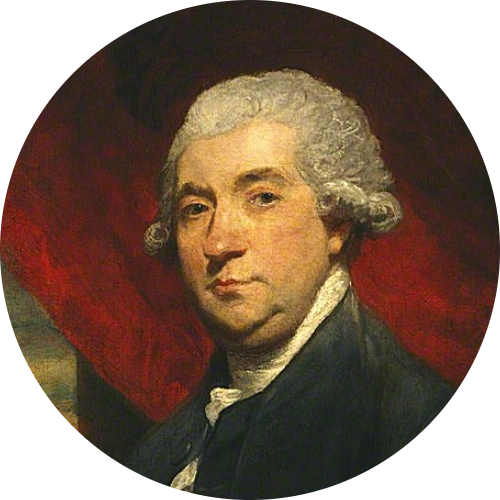Scottish judge, philosopher and noted eccentric. Burnett was the son of James Burnett of Monboddo and Elizabeth Forbes. He married Elizabeth Farquharson, with whom he had two daughters and a son.
Burnett was educated at Marischal College in Aberdeen, and at Edinburgh University before going to Groningen (in present-day Netherlands) to study for three years. After his return to Scotland, he passed his civil law examination in February 1737 and shortly after was admitted a member of the Faculty of Advocates.
In 1767 he succeeded Andrew Fletcher, Lord Milton, as a Lord of Session (judge), assuming the title Lord Monboddo.
Burnett was also a distinguished linguist, and his six-volume The Origin and Progress of Language (1773-1792) is considered the first major work in modern, comparative historical linguistics. He is even considered an early evolutionary theorist, although his theories about ouran-outangs (then used to refer to any kind of monkey) being a pre-cursor for man was widely and famously ridiculed.
Lord Monboddo is used as a character in Lillian de la Torre's The Monboddo Ape Boy, published in Dr. Sam: Johnson, Detector, a collection of nine fictional short stories featuring Dr Johnson and James Boswell in a Holmes/Watson-like partnership.
Although not present himself, Monboddo and his theories became the subject of conversation twice on August 16, 1773, during Dr Johnson's stay in Edinburgh, before Johnson and Boswell set out on their tour of Scotland. During dinner, Sir Adolphus Oughton used Monboddo's theories about ouran-outangs to avert a potential argument with Dr Johnson "[changing] the discourse, [growing] playful, laughed at Lord Monboddo's notion of men having tails, and called him a Judge, a posteriori, which amused Dr Johnson; and thus hostilities were prevented."1
In the evening, Boswell hosted a supper for Johnson in the company of Dr William Cullen, Robert Cullen, the philosopher Adam Ferguson and advocate Andrew Crosbie. Monboddo's notion that ouran-outangs might be taught to speak came up once more, and Crosbie stated, that Monboddo "believed the existence of every thing possible; in short, that all which is in posse might be found in esse". To this, Johnson replied that "But, sir, it is as possible that the Ouran-Outang does not speak, as that he speaks. However, I shall not contest the point. I should have thought it not possible to find a Monboddo; yet HE exists."
A few days later, on the road from Montrose to Aberdeen, Boswell sent his servant with a letter to nearby Monboddo House, writing "I know you do not admire [Dr Johnson] so much as I do; but I cannot be in this country without making you a bow at your old place, as I do not know if I may again have an opportunity of seeing Monboddo. Besides, Mr Johnson says, he would go two miles out of his way to see Lord Monboddo."
In reply, Boswell and Johnson were invited to dine at Monboddo, which Boswell described as "a wretched place, wild and naked, with a poor old house." They were greeted by the Lord at the gate before Johnson immediately "assaulted one of Lord Monboddo's capital dogmas", which made Boswell fear "a violent altercation in the very close." Despite their differences, however, the visit went better than might have been expected, and Boswell wrote in his journal that "My lord was extremely hospitable, and I saw both Dr Johnson and him liking each other better every hour."
First and second editions of Burnett's Of the Origin and Progress of Language are exceedingly rare, but sometimes available via AbeBooks, selling for no less than $400 per volume. Try to do an advanced search using dates of publication between 1770 and 1795 to avoid poor quality print-on-demands.
- 1Cf.
